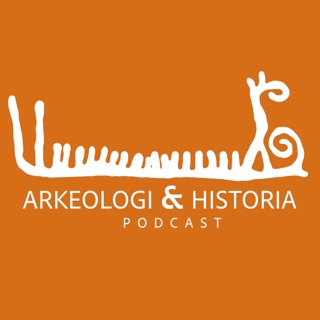
Inside the CIA’s Mind Control Experiments
This is the inside story of the CIA’s secret mind control project, MKULTRA, using never-before-seen testimony from the perpetrators themselves. Sidney Gottlieb was the CIA’s most cunning chemist. As head of the infamous MKULTRA project, he oversaw an assortment of dangerous―even deadly―experiments. Among them: dosing unwitting strangers with mind-bending drugs, torturing mental patients through sensory deprivation, and steering the movements of animals via electrodes implanted into their brains. His goal was to develop methods of mind control that could turn someone into a real-life “Manchurian candidate.” In conjunction with MKULTRA, Gottlieb also plotted the assassination of foreign leaders and created spy gear for undercover agents. The details of his career, however, have long been shrouded in mystery. Upon retiring from the CIA in 1973, he tossed his files into an incinerator. As a result, much of what happened under MKULTRA was thought to be lost―until now. Historian John Lisle has uncovered dozens of depositions containing new information about MKULTRA, straight from the mouths of its perpetrators. For the first time, Gottlieb and his underlings divulge what they did, why they did it, how they got away with it, and much more. Additionally, Lisle highlights the dramatic story of MKULTRA’s victims, from their terrible treatment to their dogged pursuit of justice. The consequences of MKULTRA still reverberate throughout American society. John Lisle is a historian of science and the American intelligence community. He was on the show for his previous book, The Dirty Tricks Department, about Stanley Lovell, the OSS precursor to the CIA, and the Masterminds of World War II Secret Warfare. In Vol. 25, No. 2 of Skeptic he wrote about MKULTRA, the CIA program in search of mind control technology. His new book is Project Mind Control: Sidney Gottlieb, the CIA, and the Tragedy of MKULTRA.
20 Maj 1h 33min

Neanderthals and Us: A Complex Story of Coexistence and Hybridization
In this eye-opening episode, Michael Shermer chats with evolutionist Telmo Pievani about the surprising coexistence—and hybridization—of Neanderthals and Homo sapiens. They discuss recent scientific discoveries, the evolving understanding of race and biology, and the crucial role of serendipity in advancing scientific knowledge. This episode offers a nuanced perspective on how unexpected findings continue to reshape our understanding of human origins and the scientific process itself. Telmo Pievani is Full Professor in the Department of Biology at the University of Padua, where he covers the first Italian chair of Philosophy of Biological Sciences. A leading evolutionist, science communicator, and columnist for Corriere della Sera, he is the author of The Unexpected Life, Creation Without God, and Imperfection (MIT Press). His new book is Serendipity: The Unexpected in Science.
17 Maj 1h 33min

AI, Trade Wars, Degrowth: What's Next for the Global Economy?
Amid rising concerns about AI, inequality, trade wars, and globalization, New Yorker staff writer and Pulitzer Prize finalist John Cassidy takes a bold approach: he tells the story of capitalism through its most influential critics. From the Luddites and early communists to the Wages for Housework movement and modern degrowth advocates, Cassidy’s global narrative features both iconic thinkers—Smith, Marx, Keynes—and lesser-known voices like Flora Tristan, J.C. Kumarappa, and Samir Amin. John Cassidy has been a staff writer at The New Yorker since 1995. He writes a regular column, The Financial Page. He holds degrees from Oxford, Columbia, and New York Universities. His new book is Capitalism and Its Critics: A History from the Industrial Revolution to AI.
12 Maj 1h 11min

Is Modern Life Making Us Miserable? What’s Fueling the Mental Health Crisis & What Can Help?
What does your diet have to do with your mood? Is mercury in fish really dangerous? Psychiatrist Dr. Drew Ramsey joins Michael Shermer to discuss the science behind nutritional psychiatry and how food, sleep, exercise, and social habits influence brain health. They explore why mental health issues are rising—especially among teens—and what role parenting, social media, and modern lifestyles play. The conversation also covers the effectiveness of SSRIs and other treatments, the role of inflammation in mental health, and the importance of sleep and tracking sleep quality. Drew Ramsey, MD is a board-certified psychiatrist, author, and leading voice in Nutritional Psychiatry and integrative mental health. He is a Fellow of the American Psychiatric Association. For twenty years, he served as an assistant clinical professor of psychiatry at Columbia University. He has authored four books, including the international bestseller Eat to Beat Depression and Anxiety. His new book is Healing the Modern Brain.
10 Maj 1h 23min

Free Speech Under Fire? From Campus Protests to Deportations
Jacob Mchangama, author of Free Speech: A History from Socrates to Social Media, joins Michael to examine the evolving landscape of free expression amid rising political and cultural tensions. They discuss how far governments, universities, and tech platforms should go in regulating speech, and what’s at stake when they do. In this episode: Should non-citizens have the same speech protections as citizens? Social media, mental health, radicalization, and the “moderation dilemma” The global shift toward stricter regulation of speech How today’s most divisive issues test the limits of free expression Jacob Mchangama is the founder and executive director of the Future of Free Speech, professor at Vanderbilt University, and senior fellow at the Foundation for Individual Rights and Expression (FIRE).
6 Maj 1h 17min

Is It Possible to Change Your Entire Personality?
Is it really possible to change your entire personality in a year? An award-winning journalist experiments with her own personality to find out—and reveals the science behind lasting change. Research shows that you can alter your personality traits by behaving in ways that align with the kind of person you’d like to be—a process that can make you happier, healthier, and more successful. Olga embarked on an “experiment” to see whether it’s possible to go from dwelling in dread to radiating joy. For one year, she clicked “yes” on a bucket list of new experiences—from meditation to improv to sailing—that forced her to at least act happy. With a skeptic’s eye, Olga brings you on her journey through the science of personality, presenting evidence-backed techniques to help you change your mind for the better. Olga Khazan is a staff writer for The Atlantic and the author of Weird: The Power of Being an Outsider in an Insider World. She has written for The New York Times, the Los Angeles Times, and other publications. Her new book is Me, But Better: The Science and Promise of Personality Change.
3 Maj 1h 19min

The Trouble with Economic Data: Flawed Metrics, Flawed Decisions
The ways that statisticians and governments measure the economy were developed in the 1940s, when the urgent economic problems were entirely different from those of today. Diane Coyle argues that the framework underpinning today’s economic statistics is so outdated that it functions as a distorting lens, or even a set of blinkers. When policymakers rely on such an antiquated conceptual tool, how can they measure, understand, and respond with any precision to what is happening in today’s digital economy? Coyle argues that to understand the current economy, we need different data collected in a different framework of categories and definitions, and she offers some suggestions about what this would entail. Diane Coyle is a Professor of Public Policy at the University of Cambridge and author of The Soulful Science: What Economists Really Do and Why it Matters and GDP: A Brief but Affectionate History. Her new book is The Measure of Progress: Counting What Really Matters. Read Diane Coyle’s new article for Skeptic.
29 Apr 54min

Did Shutting Down Schools Help or Hurt? A COVID-19 Postmortem
David Zweig’s new book An Abundance of Caution (MIT Press) is an account of the decision-making process behind the extended closures of public schools during the pandemic. In fascinating and meticulously reported detail, Zweig shows how some of the most trusted members of society—from Pulitzer Prize-winning journalists to eminent health officials—repeatedly made fundamental errors in their assessment and presentation of evidence. By fall 2020, many students in Europe were already back in classrooms—and so were their peers in private schools in America and in public schools across mostly “red” states and districts. Yet millions of other children across the U.S. remained under extended school closures. Whatever inequities that existed among American children before the pandemic, the selective school closures exacerbated them, disproportionately affecting the underprivileged. Deep mental, physical, and academic harms—among them, depression, anxiety, abuse, obesity, plummeting test scores, and rising drop-out rates—were endured for no discernible benefit. The story of American schools during the pandemic serves as a prism through which to approach fundamental questions about why and how individuals, bureaucracies, governments, and societies act as they do in times of crisis and uncertainty. Ultimately, this book is not about COVID; it’s about being ill-equipped to make decisions under duress. David Zweig is a writer, lecturer, and journalist. His writing has appeared in The Atlantic, The New York Times, The Wall Street Journal, The Free Press, and his newsletter, Silent Lunch. He is the author of Invisibles, about the power of embracing anonymous work in a culture obsessed with praise and recognition. His new book is An Abundance of Caution: American Schools, the Virus, and a Story of Bad Decisions.
26 Apr 55min




















